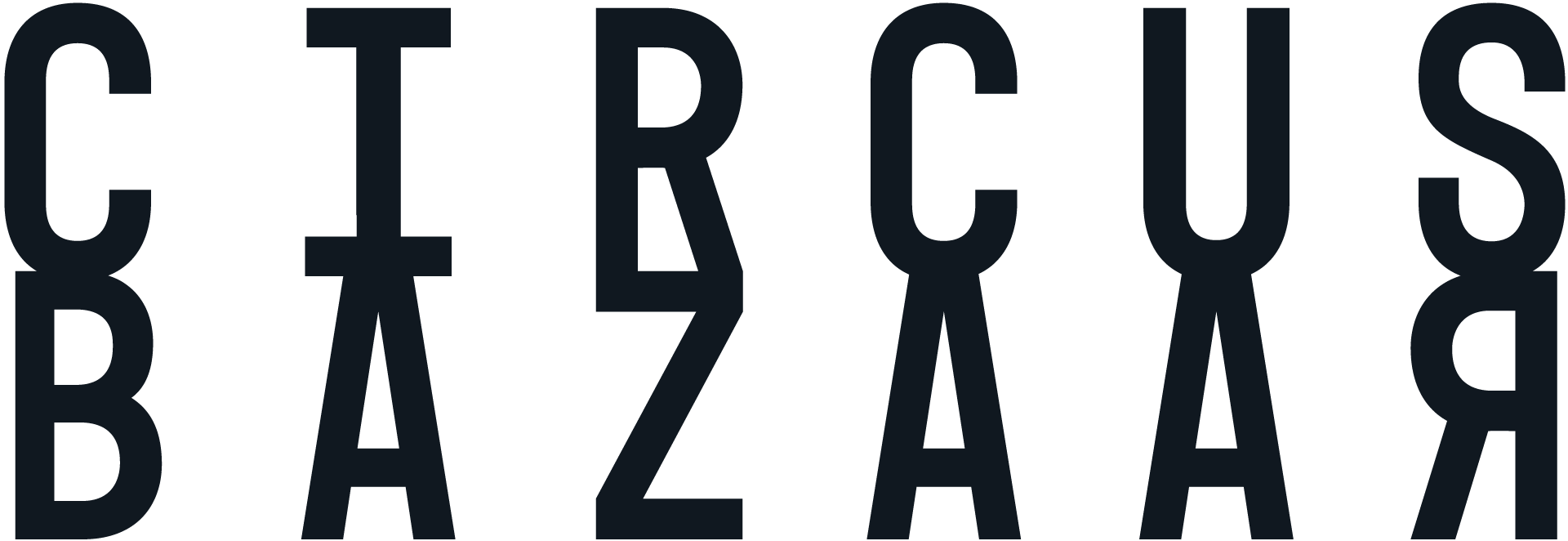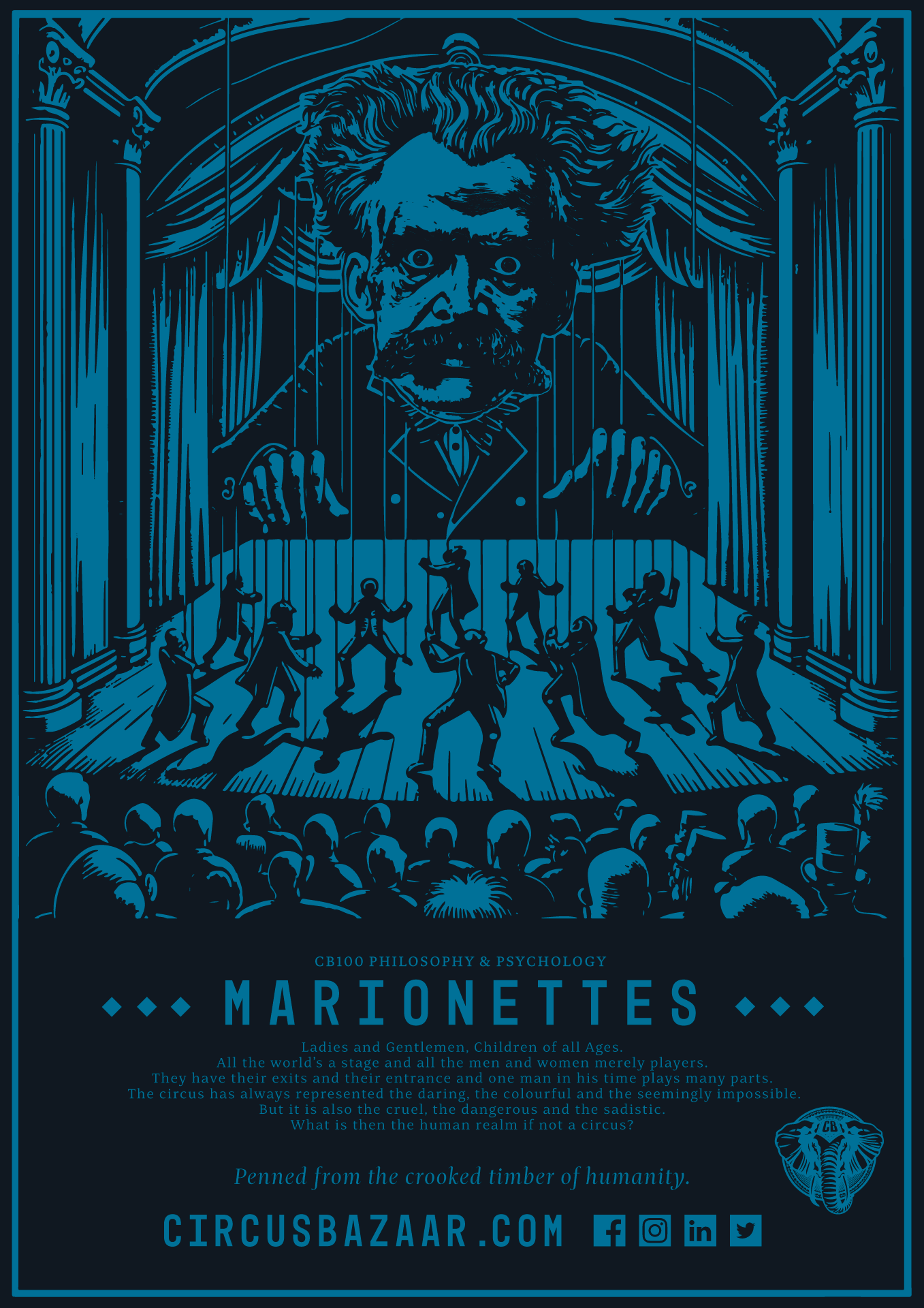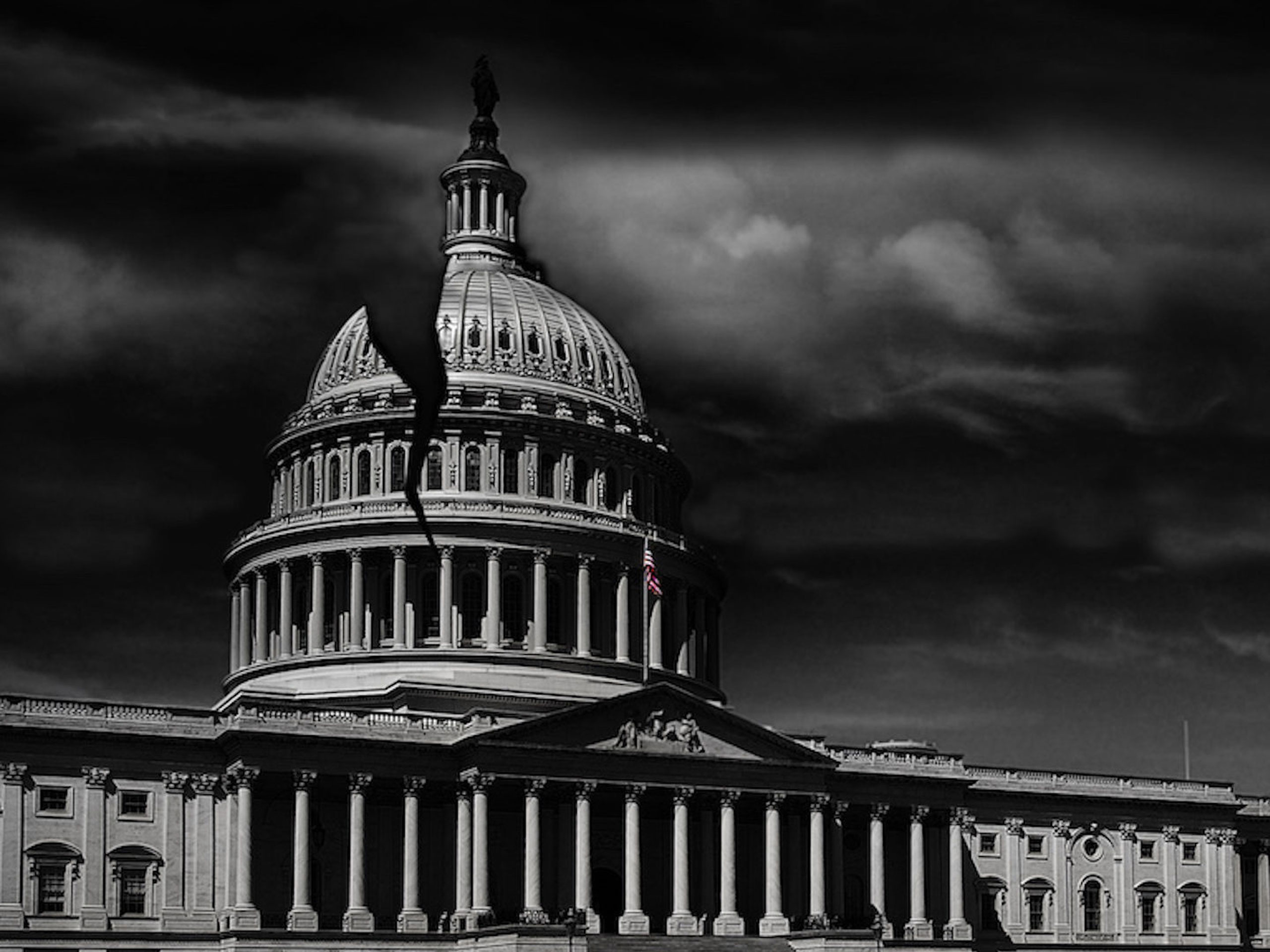During the Delta wave of the COVID-19 pandemic in the United States, an octogenarian emeritus professor at the University of Georgia abruptly quit in the middle of a class he was teaching because a student refused to don a hygienic mask.1 The teacher had legitimate reason for concern: as someone in his late 80s with diabetes and other underlying health conditions, he was at high risk for an adverse outcome should he become infected with the virus. The student, by contrast, had not come to class equipped with a mask and, after being provided one, refused to wear it correctly because she said it made it difficult for her to breathe. What was disturbingly familiar about this scenario – one being repeated elsewhere in the US – is the antisocial and absolutist version of personal freedom embraced by the student. This is not an example of the classic liberal version of freedom that informs the libertarian strains of the contemporary right – the version that stipulates, ‘your freedom to swing your arm ends at the point where another person’s nose begins’. Rather, it interprets the freedom to swing one’s arm – at least figuratively – so broadly as to render any consideration of someone else’s nose, or even their life, irrelevant.
This version of personal freedom has become a familiar staple of the right-wing response to the virus and, not coincidentally, of its critique of so-called ‘cancel culture’. Consider what Ted Cruz really meant when he demanded of Twitter CEO Jack Dorsey during a Congressional hearing, ‘Who the hell elected you and put you in charge of what the media are allowed to report and what the American people are allowed to hear?’ It was an interesting rejoinder to a commercial company media company, considering that the business of such companies has, from their inception, been to curate what information gets publicised and circulated. For Cruz, apparently, anyone should have the right to say whatever they want on Jack Dorsey’s platform. Forget for a second the question of private ownership and control (as Cruz apparently did). The model of free speech implicit in Cruz’s formulation – one that recurs in the furore over ‘cancel culture’ and ‘political correctness’ is that anyone should be able to say whatever they want, whenever they like, without any social consequences.
This last qualification lies at the heart of emergent free speech absolutism2 and links it directly to the unqualified version of personal freedom that leads a young, healthy student to completely disregard the wellbeing of those around her. We have been confronting the symptoms of this version of absolutist individualism for some time now – so it is perhaps time to consider the media conditions that enable it. An asocial individualism – one that conveniently forgets the social conditions that enable this understanding of the individual to emerge in the first place – is a characteristic symptom of an economic model based on targeting and customisation. This model, as we are aware of in increasingly pointed ways, relies upon the collection of detailed personal information to foreground a hypertrophied individualism while simultaneously relegating to the background our irreducible interdependence as social beings living in a shared society.
It is one thing to insist that people should be free to say what they want, whenever they like – but it is something altogether different to assert they should be exempt from facing the social consequences of doing so. That is asking a lot – much more than any existing society or community has ever tolerated. The principle of freedom of expression may, in the abstract, be considered a rigorous one (with exceptions for cases of direct harm – such as the proverbial shout of ‘Fire!’ in a crowded theatre). But it has always existed within concrete social and historical conditions. It has been used, in some contexts, to prevent so-called ‘prior restraint’ (in the form of a government ban on publishing information), but it has never meant blanket insulation from the social consequences of publication. No society has ever dispensed with all social limits on what might be uttered publicly without consequence, nor would it be desirable to create one. The right-wing Republicans who lay claim to such a version of free speech repeatedly fail to honour it in practice. We have seen what happens to Republicans who break with Trump’s lies about the 2020 election: Liz Cheney was literally de-platformed when she lost her leadership in the House of Representatives (although she retained her media access), and other Republicans who joined her were likely be targeted in the primaries by their own party. Those who most aggressively denigrate ‘cancel culture’ from one side of their mouths have been issuing direct calls from the other to, for example, gag anyone teaching about the history of racism in the US.3
The tension between an abstract commitment to ideals of free speech and social reality comes to a head with the emergence of technologies that make widespread, socially unaccountable speech possible. Prior to the rise of the Internet, it was certainly possible to circulate all kinds of speech anonymously or otherwise, but there were significant barriers to distributing it speedily and widely while bypassing established media gatekeepers. Public distribution based on pamphlets, bootleg audio and video recordings, and self-published manuscripts depended primarily on ‘pull’ forms of circulation – that is, demand on the part of readers.
The Internet, coupled with the rise of social media platforms, significantly reconfigured the circumstances for the circulation of anonymous content: not only do the barriers to speedy, widespread distribution decrease significantly, but also commercial algorithms ‘push’ content to viewers, often prioritising the most controversial and extreme forms of content to boost engagement4 – regardless of whether this is positive or negative. Whereas it would have been unlikely, once upon a time, to devote too much of one’s time and resources to seeking out content just because it was outrageous and offensive, social media does this work automatically to provide users with the dopamine hit that comes from doom scrolling and hate posting according to rhythms of intermittent positive reinforcement engineered to hook users.
Online, it becomes easier to imagine an almost purely abstract version of free speech: the possibility of being able to say whatever one wants, to as large an audience as possible, consequence free. The Internet not only allows instantaneous mass circulation of anonymous speech, it does so at a distance from the audience, removed from a sense of the social context (despite the attempt of commercial media platforms to brand themselves as ‘social’). Drawing on the work of the British sociologist Anthony Giddens, we might describe this version of abstract freedom as the result of the ‘disembedding’ of communication practices. For Giddens, this process refers to the abstraction or ‘lifting out’ of social relations (or, in this case, interactions) from their social contexts and ‘their restructuring across indefinite spans of time-space’.
When speech is embedded in social contexts, the practical limits imposed upon it are evident. One wouldn’t walk into a room full of people and deliberately insult them to their faces or lie about them without expecting consequences. Similarly, media outlets and advertisers understand that even if they are free, in principle, from prior restraint, there are social (and sometimes legal) consequences for airing material that transgresses social norms. The real social struggle, of course, comes in assessing, defining and redefining these norms rather than attempting to dispense with them altogether (which would mean dispensing with society itself). Establishing such norms and their tolerance for violation is an inherently social process. We cannot invent our own social norms any more than we can invent our own language. This is what it means to exist in relation with others: to be social beings.
The Internet makes it possible, in other words, to bypass the gatekeepers that enforce consensus norms while simultaneously relying on algorithmic (and human) amplification to ‘push’ content to a broad audience. There are certainly avenues for response and, on occasion, violent forms of pushback – often targeted toward women or minorities (rather than toward those most likely to complain about ‘cancel culture’) – that move from the online context to the offline, in the form of stalking, intimidation and physical assault. However, the Internet and, more recently, social media, allow for the first time in human history the materialised fantasy of a space in which one can imagine the prospect of an absolutist version of free speech – one that is not only free from prior restraint, but from social consequences. That is, they construct the fantasy of a kind of post-social model of communication.
The attack on ‘cancel culture’ launched by characters like Ted Cruz positions social norms themselves as inappropriate and illegitimate, something that can be sloughed off as we move toward a world where those in positions of privilege and power can malign whomever they like consequence-free (Donald Trump was the avatar of this version of privilege), whereas those who respond in kind from less privileged positions are accused of hatred and intolerance. But the analysis needs to push further; it is not enough to note that social media algorithms elevate the most controversial, noxious and obnoxious forms of communication.
The broader point to be made with respect to both mask refusal and free speech absolutism is that they spring from the same soil: the infrastructure of an asocial, abstracted individualism that drives the economic model of the online economy. The irony of commercial social media is precisely that it offloads distinctly and irreducibly social processes onto opaque technological systems where their very existence can be misrecognised and suppressed. The decision of how to curate content online is an irreducibly social and irreducibly political one. The false promise of automated systems is, by contrast, of a zero level of either the social or the political: that machines are somehow exempt from the social relations that have long provided the contours of our information environment – that they are somehow apolitical. The result is a transposition of market logic into the register of the machine (as if the market itself were neutral).
This asocial imperative is reinforced by the operation of data-driven customisation and targeting, which envision and construct the image of a hermetic, self-contained individual. Everyone gets their own content, their own information, and their own entertainment, custom tailored for them. Whereas the mass media can be blamed for suppressing individual freedom and diversity of choice, the ideology of mass-customised media stifles recognition of sociality and the forms of interdependence that underwrite it. We know how this plays out in the realm of news and information: the grand dismantling of the shared protocols we once relied on to adjudicate between rival accounts of the world, and the consequent cacophony of accusations of ‘fake news’. Truth collapses into consumer preference, as when right-wing viewers migrated to NewsMax5 and the One America News Network after Fox News called the 2020 election for Joe Biden. The line between fact and fiction was relegated to the realm of personal taste – what other criterion could there be when news becomes simply another personalised commodity?
Herein, perhaps, lies the answer to the question of why it might be so easy for someone immersed in a social media environment to view any request to take into consideration the wellbeing of another as an assault on personal freedom and individual autonomy. The social media bargain is not simply the offer of access in exchange for willing submission to comprehensive surveillance, it is also the promise of individualism ‘perfected’ in exchange for misrecognition of its conditions of possibility. Social media is a misnomer in the sense that it implies a heightened recognition of social interdependence on the part of the user; it is, however, accurate to the extent that it invokes the offloading of this interdependence on to automated systems, where it can be misrecognised as an unwelcome and surpassed vulnerability. This is the heart of the pathology of commercial social media – not simply that they amplify false information, not just that they privilege ‘engagement’ over accuracy, but that they embrace an incoherent fantasy of individuals ‘freed’ from their constitutive interdependence (for which machinic operations become an opaque, unrecognised substitute).
Notes:
- Yelena Dzhanova, ‘An 88-Year-Old Professor in Georgia Resigned in the Middle of Class Because a Student Refused to Wear a Mask over Her Nose: “That’s It. I’m Retired.”’, Business Insider Australia (blog), August 29, 2021, https://www.businessinsider.com.au/88-year-old-professor-resigns-mid-class-student-refuses-mask-2021-8.
- Kali Holloway, ‘The Great Hypocrisy of Right-Wingers Claiming “Cancel Culture”’, March 19, 2021, https://www.thenation.com/article/society/republicans-cancel-culture-kaepernick/.
- Nathan Hart, ‘Texas Senator Ted Cruz Hits Twitter, TV to Target Critical Race Theory’, McClatchy Washington Bureau, August 4, 2021, https://www.mcclatchydc.com/news/politics-government/article253116493.html.
- Paul Lewis and Erin McCormick, ‘How an Ex-YouTube Insider Investigated Its Secret Algorithm’, The Guardian, February 2, 2018, sec. Technology, https://www.theguardian.com/technology/2018/feb/02/youtube-algorithm-election-clinton-trump-guillaume-chaslot.
- Brian Stelter, ‘Newsmax TV Scores a Ratings Win over Fox News for the First Time Ever’, CNN, December 8, 2020, https://www.cnn.com/2020/12/08/media/newsmax-fox-news-ratings/index.html.



























